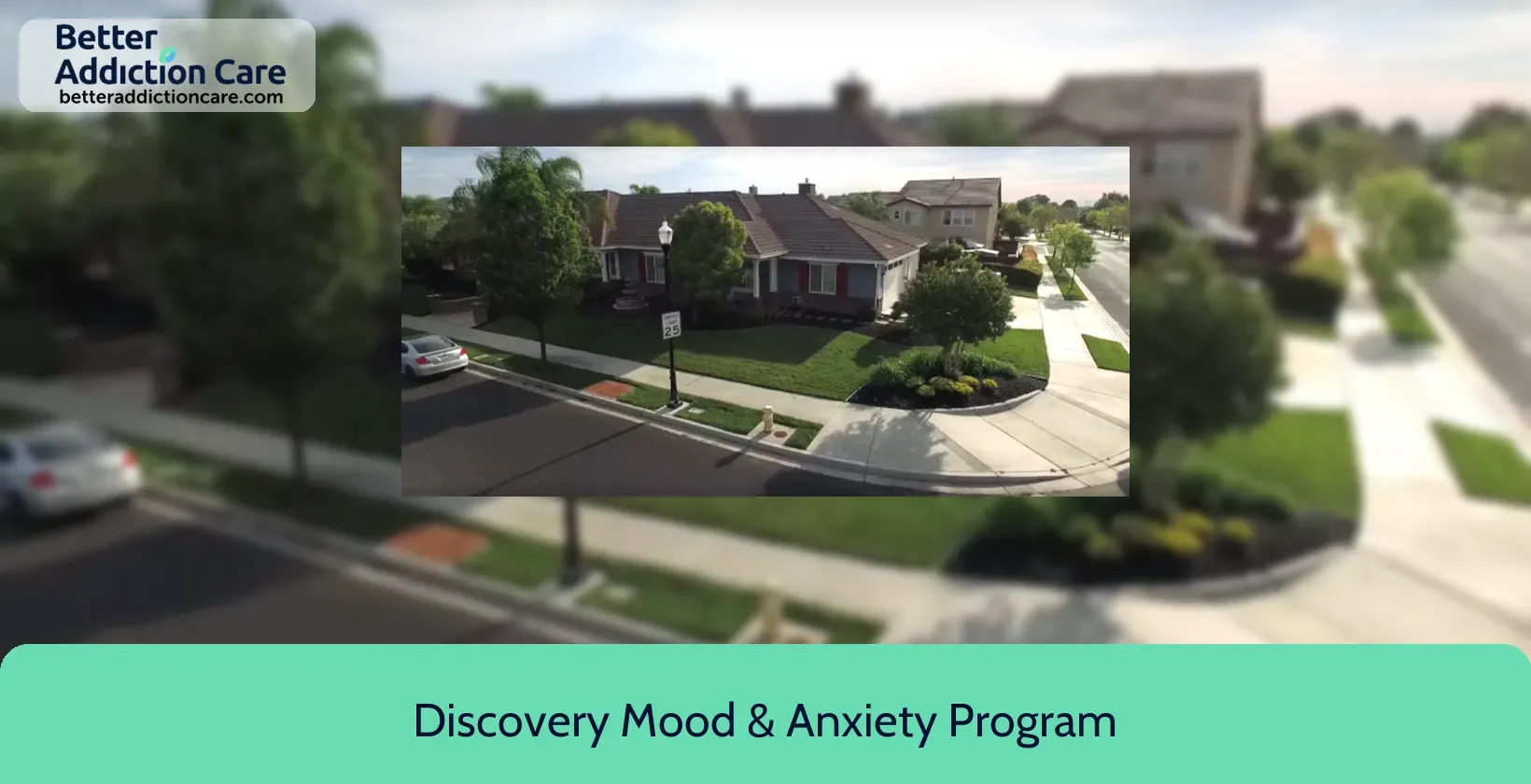Center for Discovery Pleasanton

Overview
Center for Discovery Pleasanton is a mental health treatment center for people seeking treatment near Alameda County. As part of their treatment modalities for recovery, Center for Discovery Pleasanton provides cognitive behavioral therapy, dialectical behavior therapy, and eating disorder treatment during treatment. Center for Discovery Pleasanton is located in Pleasanton, California, accepting cash or self-payment for treatment.
Center for Discovery Pleasanton at a Glance
Payment Options
- Cash or self-payment
- Private health insurance
Assessments
- Comprehensive mental health assessment
Age Groups
- Children/adolescents
- Adults
- Young adults
Operation
- Private for-profit organization
Highlights About Center for Discovery Pleasanton
6.62/10
With an overall rating of 6.62/10, this facility has following balanced range of services. Alcohol Rehabilitation: 8.00/10, Drug Rehab and Detox: 6.00/10, Insurance and Payments: 6.00/10, Treatment Options: 6.49/10.-
Alcohol Rehabilitation 8.00
-
Treatment Options 6.49
-
Drug Rehab and Detox 6.00
-
Insurance and Payments 6.00
Accreditations
The Joint Commission:

The Joint Commission accreditation for addiction and behavioral health is a prestigious recognition signifying a facility's commitment to delivering high-quality care and safety for individuals dealing with substance abuse and mental health issues. It involves rigorous evaluations and assessments, ensuring patients receive evidence-based treatment and exceptional care. This accreditation demonstrates a facility's dedication to continuous improvement and ethical practices, building trust among patients and healthcare professionals seeking top-tier addiction and behavioral health services.
Treatment At Center for Discovery Pleasanton
Treatment Conditions
- Mental health treatment
Care Levels
- Partial Hospitalization Program
- Intensive outpatient treatment
- Outpatient
Treatment Modalities
- Cognitive Behavioral Therapy
- Dialectical Behavior Therapy
- Eating Disorder Treatment
- Group counseling
- Creative Arts Therapy
Ancillary Services
Special Programs
- Children/adolescents with serious emotional disturbance (SED)
- Persons with eating disorders
- Persons 18 and older with serious mental illness (SMI)

Additional Locations
Contact Information
Read our Most Recent Article About Drug Addiction
DISCLAIMER: The facility name, logo and brand are the property and registered trademarks of Center for Discovery Pleasanton, and are being used for identification and informational purposes only. Use of these names, logos and brands shall not imply endorsement. BetterAddictionCare.com is not affiliated with or sponsored by Center for Discovery Pleasanton.









